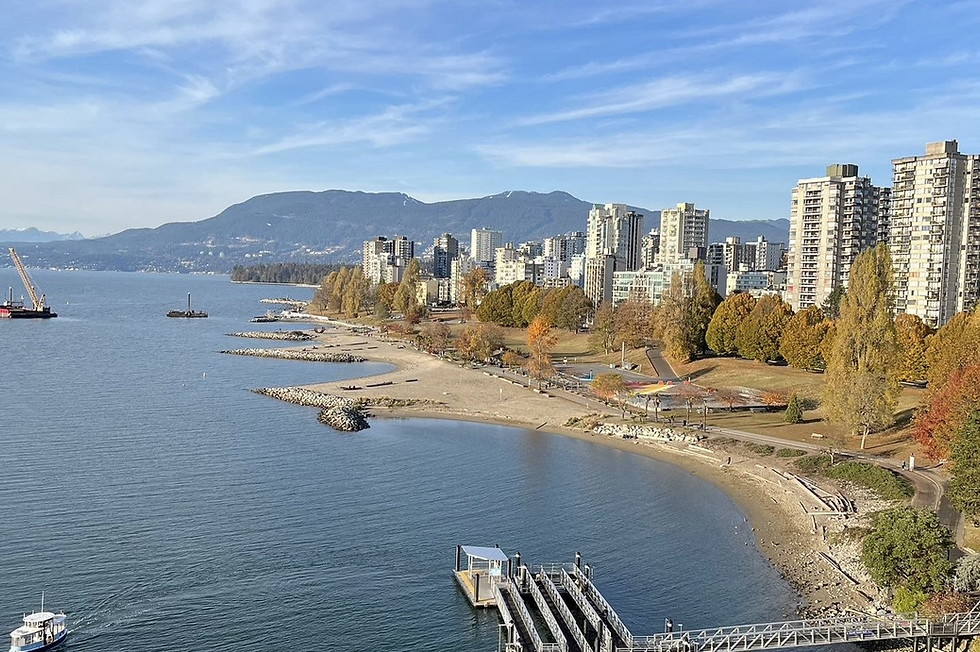3 Questions Every Immigrant Moving to Canada Wants to Know
- This Maple Life

- Nov 30, 2022
- 4 min read
Updated: Feb 25, 2024

Colourful seasons, free healthcare, postcard-worthy landscapes and welcoming people, there are many reasons why you might want to move to Canada. Personally? I moved to Canada looking for a place that would offer me opportunities to grow and provide the best life for my family.
The immigration process to come to Canada is not easy or short. However, with Canada’s straightforward and transparent immigration laws, many pathways could potentially fit your goals and allow you to immigrate here. It takes patience and hard work, but it's something possible to accomplish.
Through this blog post, we'll take you through some of the most common questions we encounter when talking to individuals who wish to immigrate to this beautiful country.
Disclaimer: Please note that we are speaking from personal experience and we are not immigration lawyers nor experts in the subject. This blog post is meant to be used as a starting point, however if you want to learn more information please visit Canada’s immigration website.
3 Questions for Every Immigrant Moving to Canada
What path/program can I choose?
There are several pathways to immigrate to Canada, including skilled worker programs, family sponsorship, refugee programs, and more. The best path for you will depend on your personal situation, qualifications, goals and current country of residence. The most popular programs are the Federal Skilled Worker Program, the Canadian Experience Class, and the Provincial Nominee Program.
Another common pathway (and the one I personally took) is the following:

Tourist Visa --> Student Visa --> Post-Graduation Work Permit (PGWPP)/Work Permit --> Permanent Residence through Express Entry Program --> Citizenship
Depending on many variables, (e.g. age, education, experience, occupation, home country) you can start from a different stage on the path displayed above.
You can check Canada's official website for detailed information regarding each step and to learn more about what path is ideal for you.
Is it expensive to live in Canada?

Canada is generally considered to be an affordable country to live in compared to other developed countries. However, the cost of living can vary greatly depending on where you choose to live. For example, major cities like Toronto and Vancouver are known for their high housing costs. It's important to do your research and create a budget before moving to Canada. Moreover, it is wise to go over your priorities before selecting what province to immigrate to. For instance, 2,000CAD in downtown Vancouver would get you a 1 bedroom (or 1 bedroom plus den at most) while in Edmonton the same 2,000CAD would get you a 3 bedroom townhome.
Is there a reason why prices vary so much?
The main factor is the weather. Canada is big and climate greatly varies depending on the region. Winter in Edmonton can get as low as -25 °C!

Winters in Vancouver are the mildest in all of Canada, hence why many prefer to move to Vancouver, British Columbia versus one of the colder provinces. At the end, all provinces (and cities) have their own set of advantages/disadvantages and it all boils down to what factors are the most valuable to you.
How difficult is it to find a job?
Finding a job in Canada can be challenging, especially if you're new to the country and don't have a strong network. However, Canada has a strong job market and low unemployment rates, so there are plenty of opportunities available.
If you are in the service industry or if you need a job quickly to make money, you will be pleased to find ample options (such as a working at cafés, restaurant, or retail stores). Most of these type of jobs pay minimum starting wage, which varies depending on the province.

Depending on your niche, finding a specific professional job may take a while. Networking, building your skills, and utilizing online job boards and recruitment agencies can help you find employment.
Good resources for job hunting in Canada would be:
Linkedin Jobs
The first step would be to check if your degree is valid in Canada and if you need to have your credentials evaluated before you come. Moreover, the process would be facilitated if you have the opportunity (time and money wise) to pursue any type of certification or degree in Canada. This can be anything from a baccalaureate level degree to a one year certificate (which tends to be more affordable).
Last but not least, it is wise to check what jobs are in high-demand in Canada before you come since these tend to have more opportunity of employment.
Don't be disappointed if you don't land your dream job right of the bat, with patience and hard work you will eventually get there.
In conclusion, moving to a new country can be daunting, but with proper planning and research, it can also be an exciting and rewarding experience. By understanding some of the common questions every immigrant moving to Canada wants to know, you can better prepare yourself for your new life in Canada. Remember, Canada is a welcoming and diverse country that offers a high quality of life for its residents
Follow us for more posts regarding life in Canada, activities and more!
_edited.png)



Very useful as the rest of your pages. Please keep sending more. CONGRATULATIONS
Very Good amor